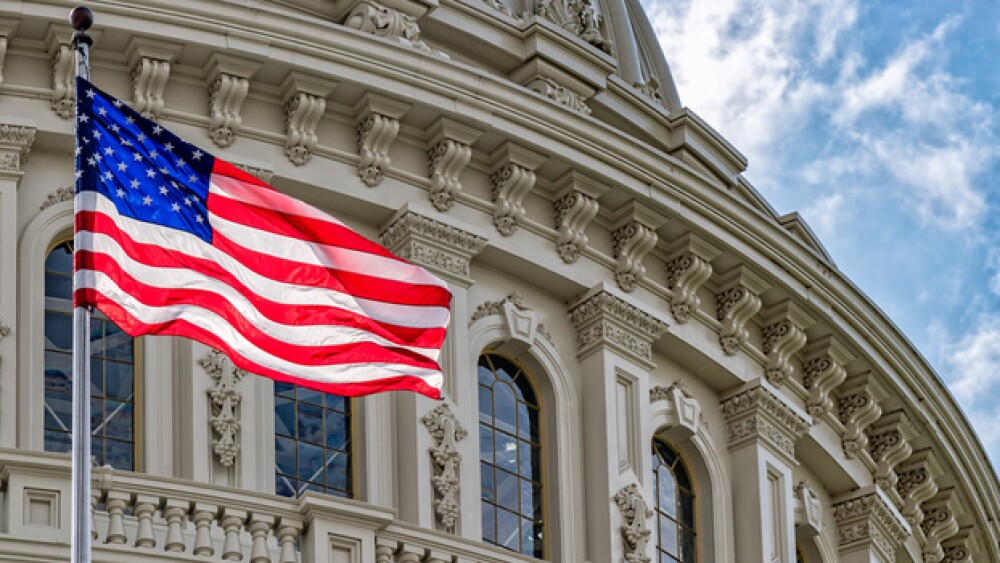Stephane Bancel, the chief executive of Moderna, has likened the need for booster vaccine doses to the way Apple releases new smartphones every year.
Andrea Izzotti/Shutterstock
As the SARS-CoV-2 virus continues to evolve and offer new challenges for healthcare worldwide, governments and pharmaceutical companies are upping activity in search of new and improved solutions. The United States, for one, decided to pour more money into testing, vaccine and therapy efforts in light of the rise and fall of COVID-19 cases and mutations. Find more details about the latest news below:
Senate Agrees on $10B Funding For COVID-19 Treatments, Vaccines, Testing
Republican and Democratic senators agreed to allocate $10 billion more in COVID-19 funds in preparation for another wave of cases in the country. The amount is a lot lower than the $22.5 billion initially requested by the Biden administration, and the agreement does not cover the administration’s initiatives to boost vaccination capabilities worldwide.
The $10 billion is still vital, as the U.S. needs to move fast to ensure that all areas have enough resources for when the next wave comes, likely in May and June. Speaking to reporters, Jen Psaki, White House press secretary, said they would work with Congress to approve more aid.
The deal mentions that at least $5 billion would go into purchase and development efforts for COVID-19 treatments, especially antiviral pills. Some $750 million will be allocated to expand the country’s manufacturing capacity, if necessary and to develop vaccines that address specific variants.
Aligos Moves Forward With Proposed Oral COVID Drug
Aligos Therapeutics is developing ALG-097558 as a possible new oral treatment for COVID-19 and its known variants. ALG-097558 is a broad spectrum coronavirus protease inhibitor that has demonstrated greater potency against SARS-CoV-2 and its resistant versions compared to nirmatrelvir.
Researchers found ALG-097558 to be nine to 20 times more active than nirmatrelvir, depending on the virus type. Against the Omicron variant, for example, the candidate drug showcased a 10-fold improvement versus nirmatrelvir. The Phase I clinical trial application is scheduled for the second half of 2022.
Moderna Chief Says Annual Vaccine Boosters For Viral Illnesses Possible
Stephane Bancel, the chief executive of Moderna, has likened the need for booster vaccine doses to the way Apple releases new smartphones every year.
Speaking to reporters Monday, he said that Moderna has the capacity to utilize the technology it used to quickly develop a vaccine for COVID-19 in 2020 to do the same for other types of viral illnesses. The company is poised to release an annual COVID-19 booster in the fall of 2022 to shield people against new and emerging SARS-CoV-2 variants.
“We’re going to keep adding more and more ‘apps’ for viruses, and we’ll refresh all of those and update all of those every year. Once you get all the pieces of the technology to work, then the next one is [easy],” Bancel said.
COVID-19 Vaccinations In Early Pregnancy Not Linked to Neonatal Defects
A study of 3,156 females by scientists from the Northwestern University Feinberg School of Medicine dispelled assumptions that women who received at least one vaccine dose in the early stages of pregnancy may be at a higher risk for neonatal and maternal defects compared to those who are unvaccinated.
The cohort to the STROBE trial looked into the effect of vaccination on pregnant women who completed an anatomic survey and signed waivers of informed consent in Chicago for the activity. At the end of the trial, the researchers found that 109 of the 2622 women who received at least one dose of vaccine demonstrated an anomaly, compared to 27 of the 534 who did not have the vaccine at all.
However, when possible confounding elements were removed, such as chronic hypertension, age at delivery, hemoglobin level and nulliparity, there was no association between vaccination and congenital anomalies, as assessed via ultrasound. As there remain other factors not considered in the cohort study, the scientists are calling for more in-depth research into the concept.
“Given the urgent need for safety data on COVID-19 vaccines, these preliminary findings may be useful when considering vaccination during early pregnancy. The adjustment for preexisting risk factors (eg, hyperglycemia) allowed for a better understanding of associations between vaccination and anomalies. Clinicians may use this evidence in counseling their patients on the safety of vaccination,” they said.
Details are published in the JAMA Network.
Gilead’s Remdesivir Fails in Euro Study
Remdesivir, Gilead Sciences‘s COVID-19 therapeutic, did not demonstrate any benefit to hospitalized patients in a study that the European Union Commission, French Ministry of Health and other European organizations sponsored.
The multicenter, open-label, randomized DisCoVeRy trial had adult participants receive either the usual standard of care alone or in combination with remdesivir, lopinavir/ritonavir, lopinavir/ritonavir and IFN-β-1a, or hydroxychloroquine. Remdesivir was given as 200 mg infusion on the first day, followed by once-daily doses of 100 mg for up to nine days. At Day 15, when the participants were observed using the World Health Organization’s 7-point ordinal scale, the scientists did not find any clinically significant sign of improvement.
Gilead provided the study’s supply of Remdesivir free of charge.





